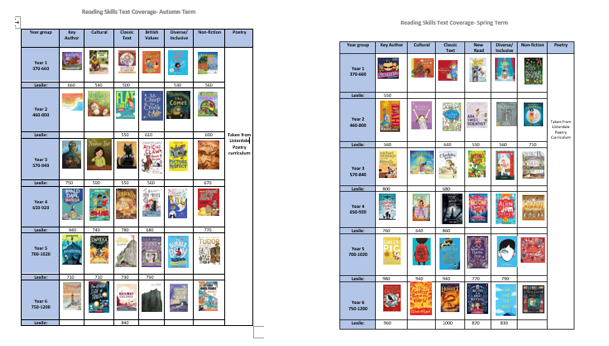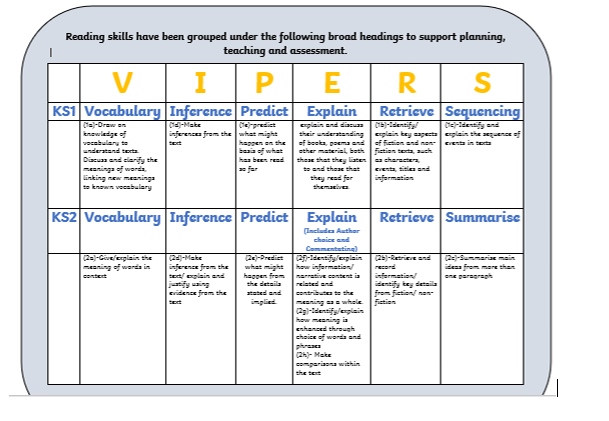Reading
Intent
At Temple Normanton Junior Academy, reading is at the heart of our curriculum, especially ‘love for reading’. It is our intention that every child will be a reader and read fluently with prosody and with confidence, and they will be encouraged to develop a lifelong love of reading. We want all children to leave Temple Normanton Junior Academy with a rich vocabulary that opens doors to a world of knowledge and opportunities. Reading is a gateway to lifelong learning. Children who develop a love for reading are more likely to continue learning throughout their lives, staying curious, informed, and engaged in the world around them.
Implement
Phonics
At Temple Normanton Junior Academy phonics is taught from Foundation Stage 2 through to Year 2 using a systematic, synthetic approach. Temple Normanton Junior Academy follows the ACET Phonics Scheme.
All children are assessed using the ACET assessment booklets and are grouped based on their current phonic level. Children will then be taught the appropriate sub-phase over the 6-week cycle before they are assessed again and regrouped. A keep-up programme will run alongside this to ensure all children still have the opportunity to acquire the phonemes appropriate for their year group.
Discrete phonics lessons take place daily across Foundation Stage and Key Stage 1. For Phase 1 (taught in FS1) children will complete activities in small groups that develop their speaking and listening skills and lay the foundations for the phonic work which starts in Phase 2. The emphasis during Phase 1 is to get children attuned to the sounds around them and ready to begin developing oral blending and segmenting skills. Children will use Phase 1 books to orally tell stories.
Lessons for Phases 2 to 5 follow the structure of ‘Review, Teach, Practise, Apply’ to ensure that children are consolidating phonic knowledge and skills over time and that they are able to apply them in context. During lessons there are opportunities for discussing new vocabulary and ensuring letter formation is correct.
By the end of Foundation Stage children at the ‘expected’ level will be secure in phase 3d. Children who achieve the ‘exceeded’ grade will be working at phase 4 or above.
- By the end of Year 1 children at age related expectations (ARE) will be secure in phase 5f.
- By the end of Year 2 children at ARE will be secure in phase 6.
Children in Foundation Stage who are working below ARE will take part in small focus group phonics sessions to be taught the age related phonemes in addition to their discrete daily phonics lesson at their current phase.
Children in Year 1 who are working below ARE will be part of an afternoon ‘keep up phonic session’ (KUPS) where they are taught age related phonemes to ensure they are able to access and pass the Phonics Screening Check. This will be monitored through rigorous monitoring and tracking by the Phonics Lead, Mrs Wallis, and Reading lead, Mrs Thomas.
The ‘keep up’ programme is delivered to children in Year 2 or above as intervention sessions to reteach and consolidate specific phoneme acquisition based on individual needs. Our phonics assessment booklet which is updated half termly is used to highlight the gaps in children's phonics knowledge and to ensure they keep up with age related expectations.
There might be times when a child requires phonics teaching in KS2. This is when a gap in their understanding of a particular phase is identified. With the support of the Phonics and Early Reading lead, those children who are not yet reading fluently will be quickly identified, assessed and support / intervention is put in place.
As part of our academy improvement plan, every child in Y3-Y5 receives a daily phonics session which re-caps phase 6 phonics to ensure all children have acquired the phonics knowledge and skills to enable them to become a confident fluent reader.
Year 1 Phonics Screening Check
This is a statutory assessment that children take at the end of Year 1. They will complete it 1 to 1 with a teacher or familiar qualified adult in school. The test is a list of 40 real and pseudo (alien) words.
As a child goes through the test, they are expected to apply more advanced phonics skills. The pass mark has remained at 32+ since its introduction in 2011 and children who do not pass in Year 1 are required to retake the test at the end of Year 2.
We will prepare children for this test from FS2 onwards in an informal and fun way. We use the check as a measure, not the finish line, and aim for the children to score 40 marks in year 1 to demonstrate their sound grasp of phonics knowledge. Their progress will be tracked and shared with parents regularly and any additional support needed to be put in place.
Fluency
Reading fluency is defined as reading with accuracy (reading words correctly), automaticity (reading words at an appropriate speed without great effort) and prosody (appropriate stress and intonation). We understand that fluent reading supports reading comprehension. When pupils read fluently, their cognitive resources can be redirected from focusing on decoding and onto comprehending the text. We give the opportunity to bridge this from word recognition to comprehension by providing opportunities for fluency practice. This may be through adults modelling the fluent reading of a text first and then pupils reading the same text aloud with appropriate feedback and repeated reading. We also give the opportunity for repeated reading. This involves pupils re-reading a short text a set number of times or until they reach a suitable level of fluency.
Beyond fluency-Teaching Reading Strategies
Once children are equipped with the skills to read with fluency, we deepen their understanding of reading through the teaching of reading skills with a focus on developing understanding and comprehension and the exploration of vocabulary. We want our pupils to become expert readers who are capable of making complex comparisons between authors and understanding language choices. We provide daily lessons from Y2-Y6 and use carefully selected texts which provide them with mirrors, doors and windows to their world and expose them to challenging, ambitious vocabulary. We believe that what we are teaching in reading to be equally important as how we are teaching reading. Book choices are designed to capture the interests of children and introduce knowledge and values in line with national curriculum expectations. In addition, we also use the Lexile framework to evaluate the reading demand, analyse the text’s semantic (word frequency) and syntactic (sentence length) characteristics.

We follow a weekly structure in the teaching of our reading strategies which provides the children with an introduction to the focus text. We place great importance on the ‘Unlocking the text’ lesson to provide children with background knowledge and be introduced to any unfamiliar vocabulary which they may meet. We want all our children to have equal access and opportunities for success, despite their knowledge and experience. Following the unlocking of the text session, daily lessons provide rich discussion on the text with an opportunity for an activity linked to a focused area of reading.
These areas include:
KS1-Vocabulary, Inference, Prediction, (Explain) Retrieve, Sequencing
KS2-Vocabulary, Inference, Prediction, Explain (Authors’ choice and Commentating), Retrieve, Summarise

At the end of each week, pupils are presented with five assessment questions which are directly linked to the skills which have been taught throughout the week.

Daily lessons have a clear structure which is followed throughout school. The beginning of each session gives opportunities for reading fluency and strategies include: Teacher reading aloud, choral reading, echo reading, partner reading and silent reading. Rich discussion then takes place around the text before a reading skill is then focused upon and introduced to the children. This part of the lesson includes a teacher demonstration and a whole class discussion. Following this, children complete an activity where they have the opportunity to practise and explore this skill further. At the end of each daily session, children come back as a whole class and are presented with a question linked to the skill which they have explored. This gives them an opportunity to apply the skill in a reading comprehension format and understand how to transfer skills and formulate answers.

Love for reading:
‘Love for Reading’ is a key driver for our curriculum at Temple Normanton Junior Academy. We want all our pupils to develop a lifelong love of reading. Children visit our school library weekly and have 'reading for pleasure' texts daily to expose them to a wide range of texts and to encourage their love of reading. We advertise and promote books in the library and in individual classroom reading areas, and we give time for our pupils to enjoy and share these books with peers. Books relevant to other areas of the curriculum are available to deepen knowledge and help discover a passion through reading.
We celebrate reading in a variety of ways; world book day, reading bingo, weekly raffle and a range of competitions through the year.
Useful Links
Useful Videos
